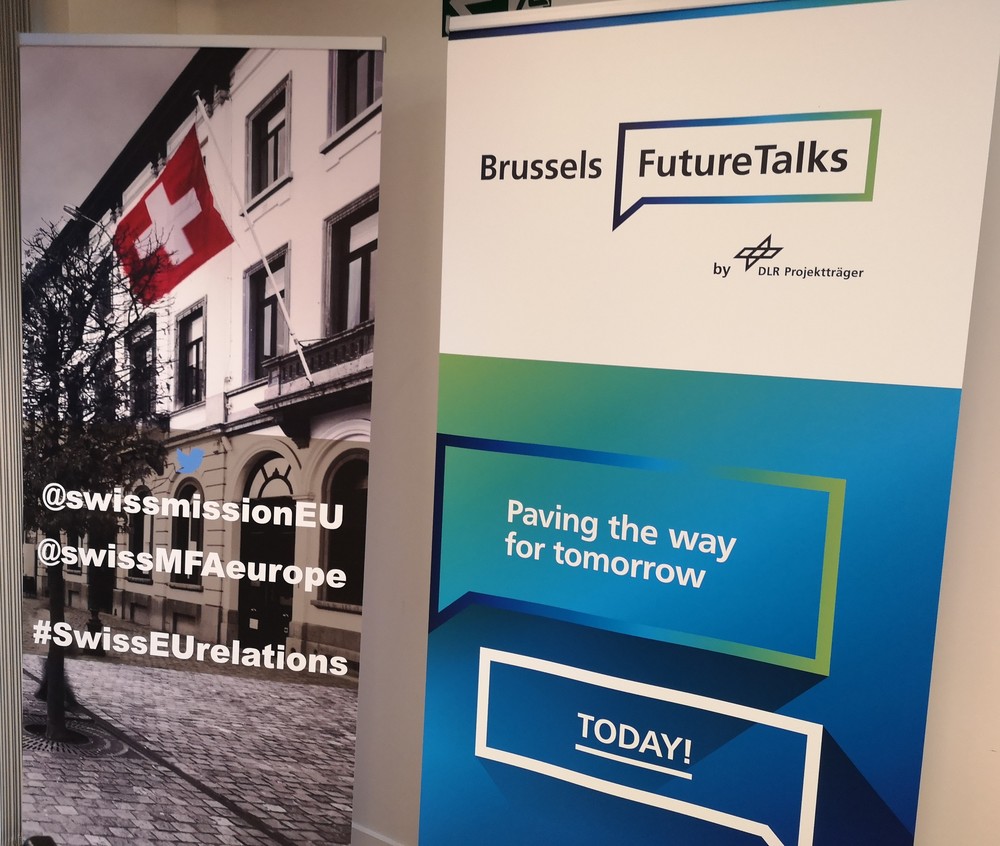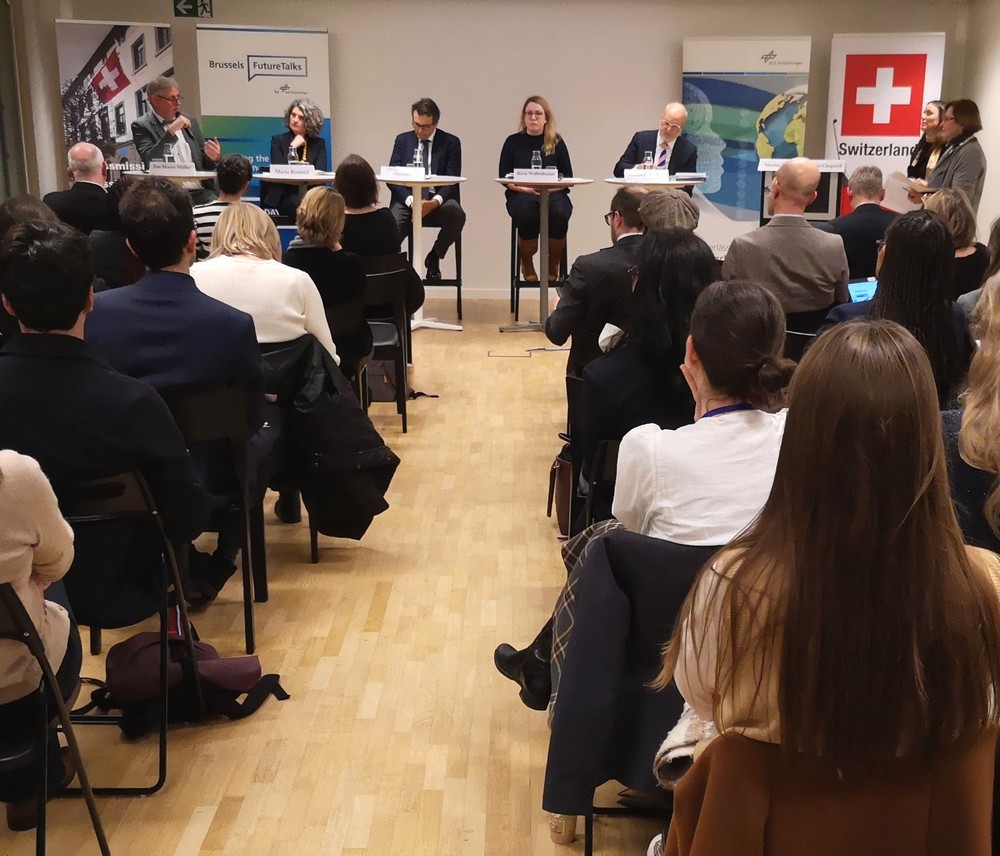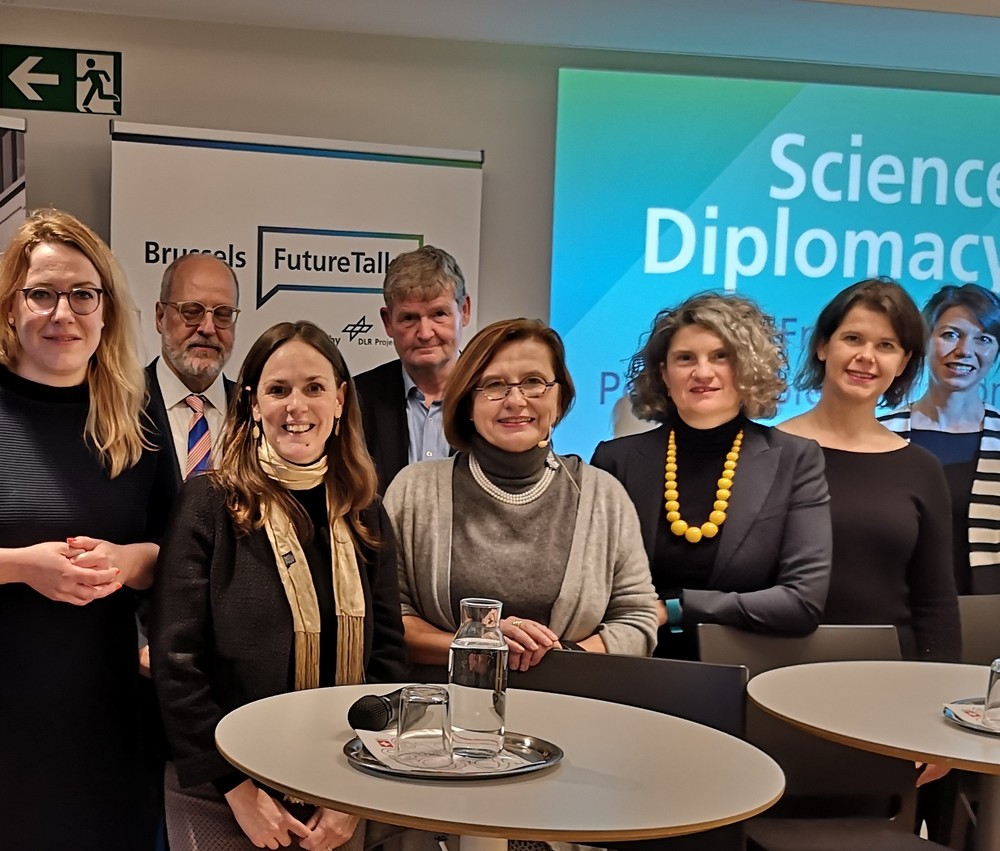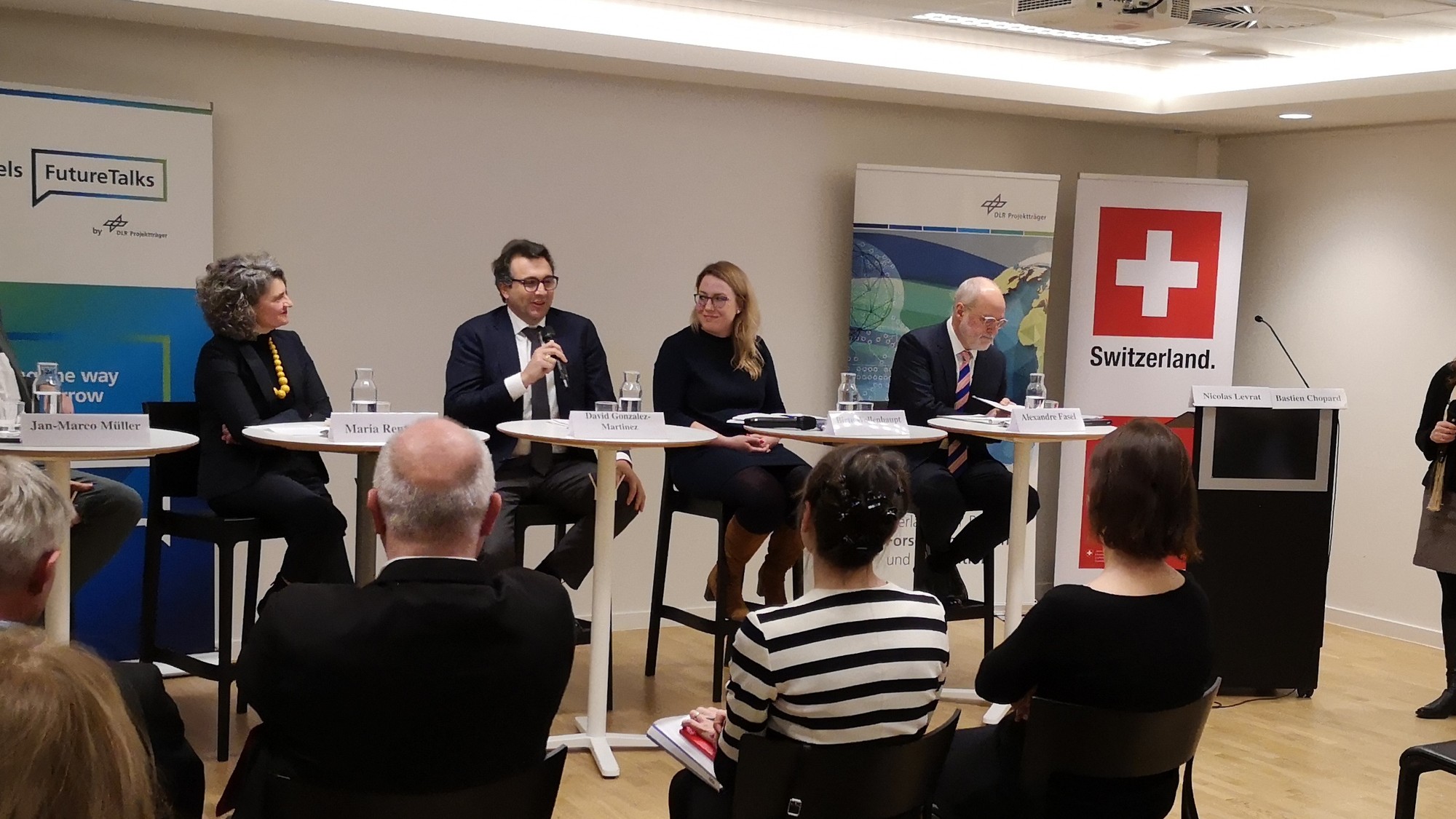
Science Diplomacy, from Data to Policy Implementation: Panel discussion at the Swiss Mission to the EU on 26 January 2023
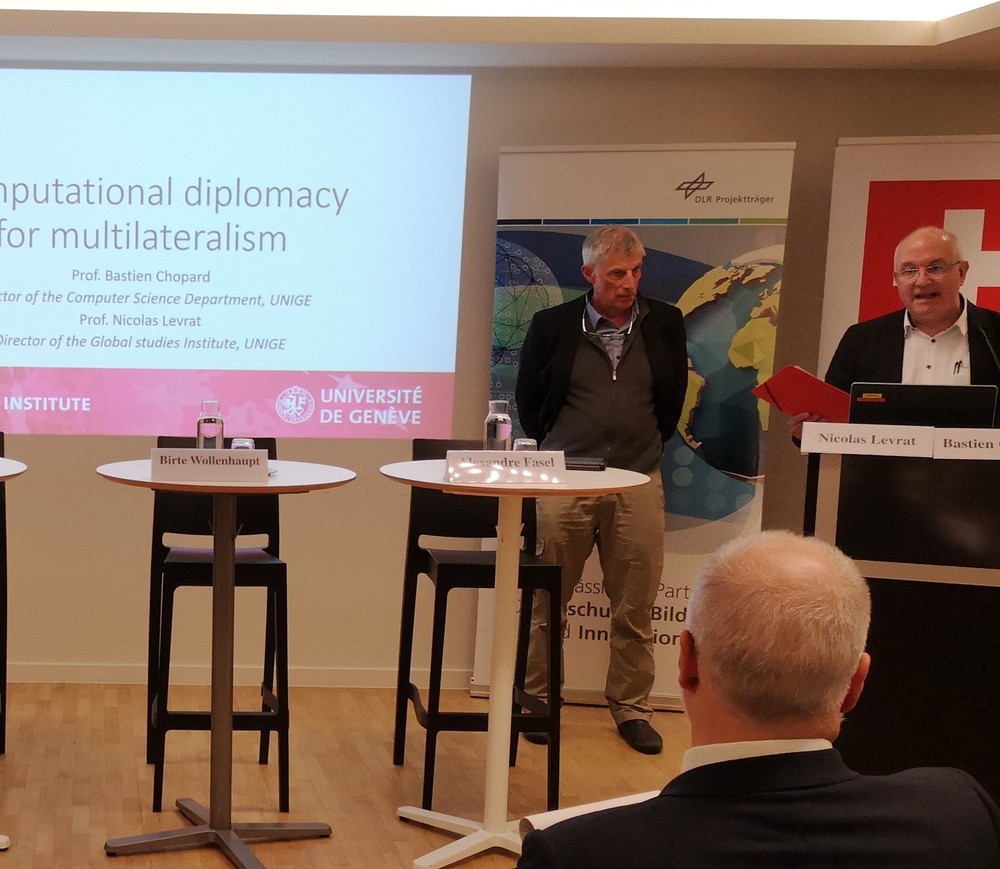
Jointly with the Project Management Agency of the German Center for Aerospace (DLR) the Swiss Mission to the EU organized an event on the topic ‘Science Diplomacy, from Data to Policy Implementation’. Science diplomacy holds a prominent place on the EU’s policy agenda with the preparation of a European Science Diplomacy Agenda on the way. Switzerland as a host country of CERN and several multilateral organisations can substantially contribute to the debate.
Presentations and the panel delved into the potential of science and scientific evidence to understand complex issues and make informed decisions. Nicolas Levrat and Bastien Chopard from the University of Geneva presented the Science in Diplomacy Lab (SiDLab), which they are establishing together with ETH Zurich. SiD Lab aspires at making use of the plethora of data available from international organizations and apply machine-learning methods to structure and relate it, in order to provide diplomats with a better understanding of the world and an objective information base as a starting point for negotiations. The discussion featuring Maria Rentetzi, from FAU Erlangen-Nürnberg, David Gonzalez from the Spanish Council Presidency and Ambassador Alexandre Fasel, Swiss Special Representative for Science Diplomacy, addressed the fear of reducing human interaction in diplomatic relations to data and warned of using science as a simple tool or service to diplomacy. Science and diplomacy will have to cooperate in a dialogue, requiring the training of diplomats to use science and data. In addition, foresight can help to anticipate and align the different mindsets and perspectives in order to develop practical solutions. The panel also raised the challenges of ethics and asymmetry in the access to technology and data.
Providing ample opportunity for the exchange between the Swiss speakers and panelists and their counterparts from Germany, Spain and the European Commission, the event sparked a vivid discussion. Several bilateral meetings set around it served the better understanding of the process behind the preparation of the European Science Diplomacy Agenda and testing the ground for Swiss contributions. Finally, this first joint event kicked-off a closer cooperation with the DLR Brussels office, which forms the base for more joint projects already planned for 2024.
